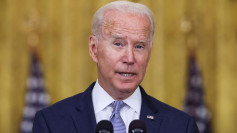As Trump targets Canadian imports with heavy tariffs, premiers push for national action, warning of energy retaliation and political upheaval.
Canadian lawmakers have contemplated a severe response of slashing energy imports to the US after President-elect Trump revealed his intention to impose harsh new tariffs on Canadian exports. However, according to a report published by Politico on Wednesday, not all Canadian officials are enthusiastic about this concept.
A 'national unity crisis' might ensue if the federal government uses Canadian oil as a weapon against tariffs, according to the premiers of the top oil-producing provinces, who have expressed their fear of further polarization between the national capital and Western Canada.
The premier of Alberta, Danielle Smith, and the premier of Saskatchewan, Scott Moe, who run the two provinces that produce the most oil, are also exerting pressure on Trudeau to schedule a federal election. This is being done to ensure that the prime minister of Canada has a strong mandate to negotiate with Trump, according to the source.
According to Politico, despite the fact that the United States is a net exporter of energy and one of the greatest oil and gas producers in the world, it continues to make major use of energy supplies from Canada.
"Canada is the largest [foreign] supplier of energy to the U.S., supplying Americans with about 60 percent of its crude oil imports. And as of 2020, Canada supplied the U.S. with 98 percent of its natural gas imports, 93 percent of its electricity imports and 28 percent of its uranium purchases, government data shows."
Although the tariffs imposed by Trump are intended to compel Canada to strengthen border security and put a halt to the flow of fentanyl into the United States, Canada is already making preparations to increase financing for border security by 1.3 billion Canadian dollars.
In light of all of this, President Trump has been increasing his ridicule of Canada and has suggested that the country should allow itself to be annexed as the 51st state of the United States in order to avoid a costly trade war, The Raw Story shares.
It also comes at a time when Canadian politics are in disarray and face an unknown future; Prime Minister Justin Trudeau, who was facing public outrage, has resigned as the head of the Liberal Party, which is the party that is currently in power, and polling predicts that the party could suffer large losses if a federal election is called.






